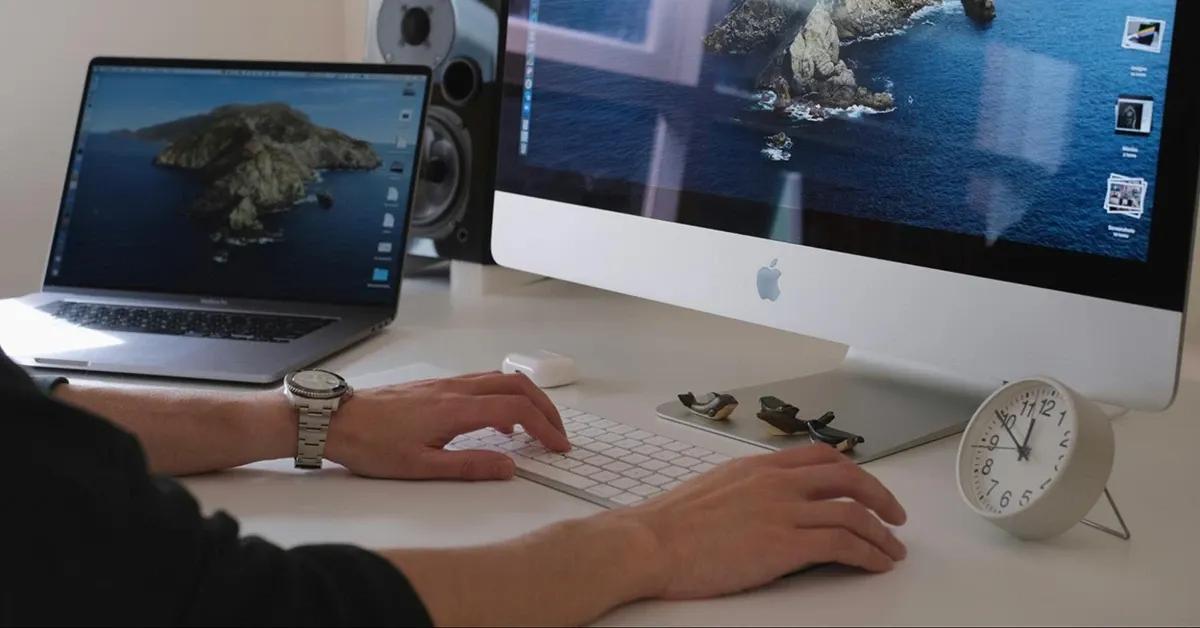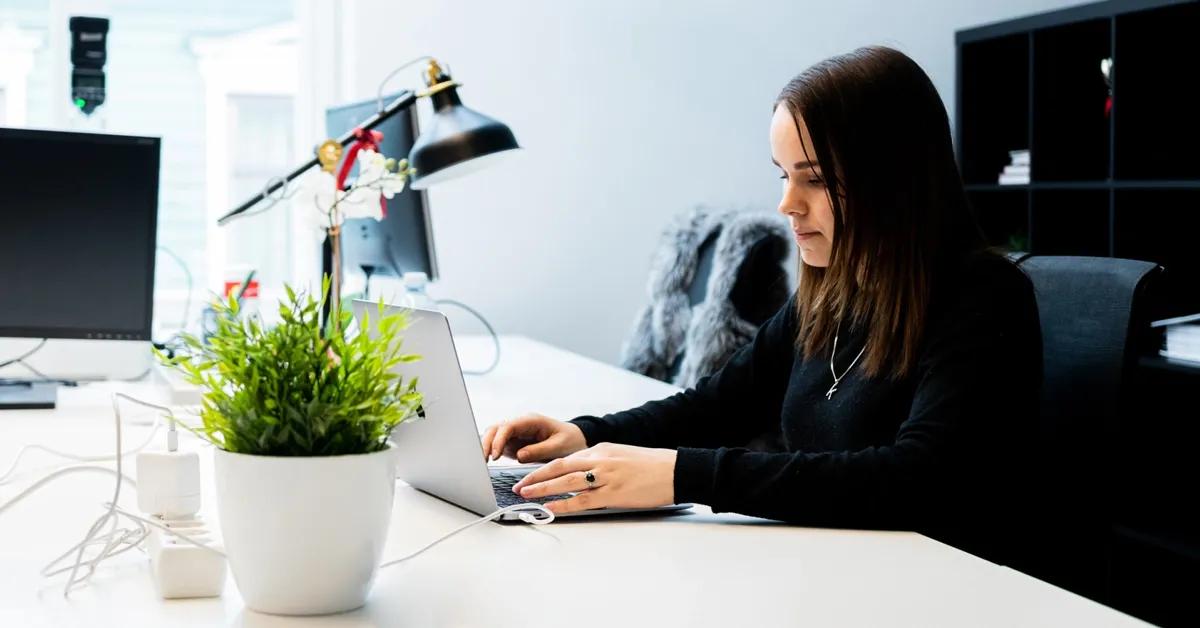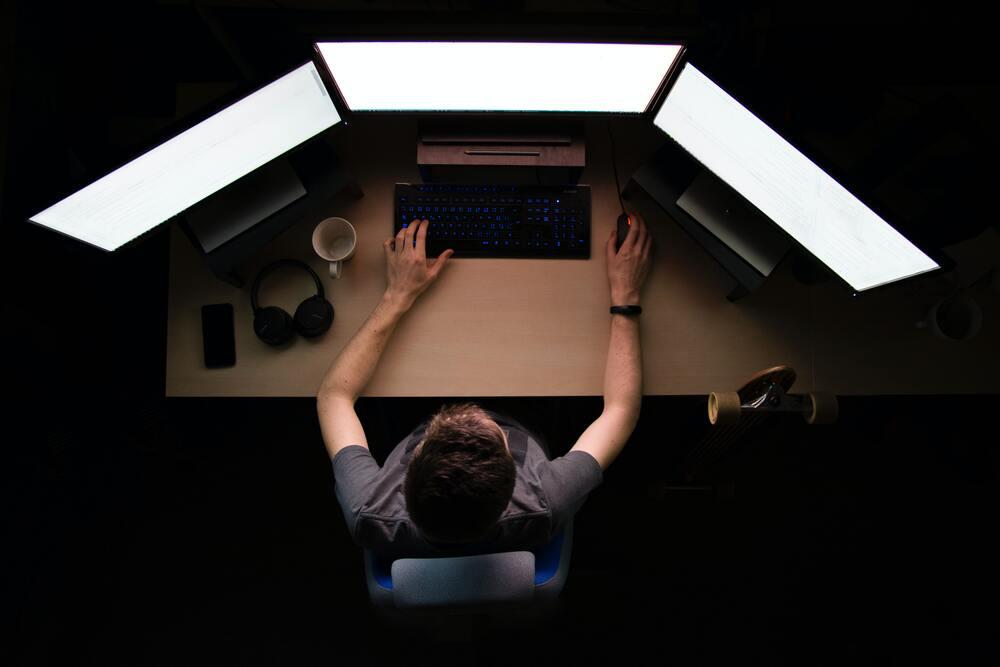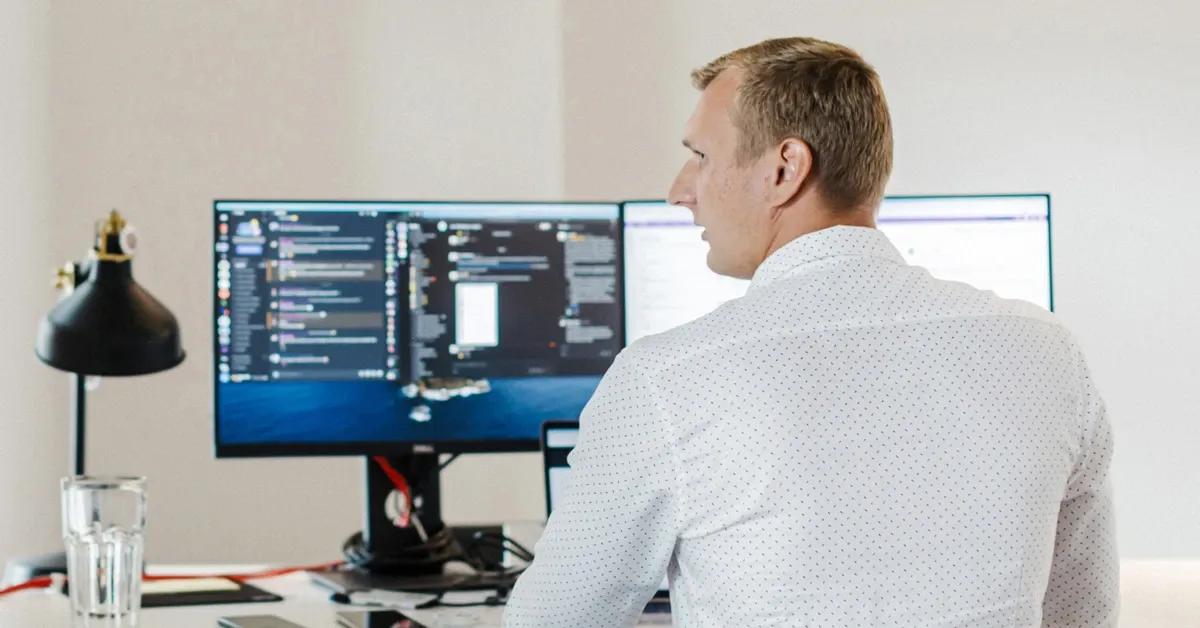The majority of us have a lot to do on a daily basis. Even with high hopes and good intentions, plans and schedules, it can be difficult to stay motivated, consistent and make the most of your time at work. Do you struggle to stay focused? Did you know that on average people spend 12 minutes working before getting distracted? Are you one of those people? Are you constantly being distracted and finding it hard to be productive?
A few improvements in productivity such as developing techniques and habits can help you work more effectively and feel satisfied with your accomplishments at the end of each day.
In this blog post we will discuss what productivity is and why it’s important, and share 10 tips on how you can improve and maximize productivity. Let’s get to it.
What is productivity?
Is productivity just about the time spent working? If someone works longer hours, does that mean they are more productive? Can we measure productivity by the amount of time someone spends on a task? Many questions are raised about measuring and understanding productivity. Here is a simple formula to answer all of those questions—and explains what productivity is:
Productivity = Output / Input
- Output: The result or outcome of your work
- Input: The resources, time and effort you invest in completing a task or achieving goal
Looking at this formula, we can define productivity as the ratio of the output produced to the inputs used. Namely, high productivity indicates that more output is being produced with the same or fewer inputs, while low productivity suggests that more inputs are required to produce the same amount of output.
How can you boost productivity?
Your productivity can have a significant impact on your job success and personal satisfaction. Specifically, being productive at work can lead to recognition, promotions, and career growth, while on a personal level it leads to a greater sense of accomplishment and fulfillment.
To boost your productivity, you need to:
- Increase output—achieve more with the same input.
- Optimize input—achieve the same output with less input.
Improving productivity involves adopting strategies, habits, and practices that enhance efficiency. Let’s take a look at some ways to improve productivity.
1. Set goals and write them down
The first and most important step is to set goals and remember to write them down. This is the cornerstone of success. According to a Harvard Business Study, the 3% of MBA grads who wrote down their goals earned 10 times more than the other 97% combined, just ten years after graduation. Not only does setting goals provide a roadmap for tracking progress, but it also fosters a laser-like focus on one task at a time, effectively reducing stress and anxiety. As you track your progress through these goals, the sense of accomplishment serves as a powerful motivator, propelling you towards even greater achievements.
Goals can be divided into long-term and short-term goals:
Short-term goals act as immediate milestones, ensuring consistent progress and maintaining momentum.
Long-term goals offer a compelling vision for the future. These aspirations act as beacons, guiding your efforts and shaping your overall trajectory.
The synergy between short-term victories and long-term goals creates a harmonious rhythm, propelling you toward sustained success in both long and short term.
2. Avoid multitasking
Now that you have your goals set and a clear plan, I suggest trying to remove multitasking from all the activities and separate them into single tasks. Multitasking can strain cognitive resources, similar to how a computer may slow down when handling too many processes at once. In fact, shifting between tasks can lead to a 40% drop in productivity, so focus on completing one task at a time to maximize productivity.
3. Plan your breaks
Taking breaks at work is similar to making a pit stop on a long journey. Imagine yourself driving down a highway, steadily covering miles towards your destination. As the journey progresses, the need for a pit stop becomes clear: a chance to refuel, stretch your legs, and clear your mind.
Similarly, the workday can be viewed as a continuous journey full of tasks and responsibilities. Without breaks, it's like driving nonstop without refueling. Fatigue sets in, focus fades, and the quality of your work may start to deteriorate.
There are numerous benefits of taking breaks at work, like reducing stress, improving creativity and of course, increasing productivity. In fact, statistics reveal that taking a break every 90 minutes can lead to a 16% increase in productivity, while creative problem solving improves by 15% after breaks.
Not only can breaks be used as a time to rest, but you can also implement breaks to further contribute to overall productivity and personal wellbeing.
You might be interested in: Work-Life Balance: Nurturing Mental Health in IT
4. Use the Pomodoro Technique
The Pomodoro Technique is a time management method that uses a timer to break work into intervals, traditionally 25 minutes in length, separated by short breaks.
These breaks act as your 'rest periods,' allowing your mind to recover before the next set of work exercises. The Pomodoro Technique is a scientifically proven strategy that allows you to do more with less effort.
How to apply the Pomodoro Technique:
Step 1: Choose a task you want to work on
Step 2: Set a timer for 25–90 minutes
Step 3: Work on that task until the timer rings.
Step 4: Take a short break (5–15 minutes) to recharge.
Step 5: Repeat steps 2–4.
Step 6: After performing 4 cycles take a longer break of 15–30 min.
The Pomodoro Technique enhanced my productivity by shifting my focus away from the chaos of multitasking and long work sessions. Adopting intense 30-minute work sessions with periodic breaks improved my performance while also creating a habit that significantly decreased stress and weariness. As my work intervals gradually rose to 1.5 hours, this method sharpened my attention while also revealing my most productive hours, allowing me to optimize my daily routine.
In a traditional work setting, where a 15-minute break is planned every two hours, followed by a one-hour lunch break, it is vital to maximize this time. Rather than waiting for a full 2-hour stretch, consider breaking it down into a 1-hour work session and a 7.5-minute break. Use these breaks wisely.
The Pomodoro Technique became the cornerstone of my productivity, creating a balanced and efficient work routine.
5. Do not sacrifice sleep
Sleep is essential, serving as the foundation of overall well-being and cognitive function, just like the foundation of a well-built house. Think of your everyday activities as the structure you're building—each activity, duty, and objective is a component of this architectural project.
When you don't get enough sleep, not only is it bad for health but your concentration, focus, and creativity also suffer, decreasing your ability to function at the fullest potential, making work much more difficult and less motivating. One study found a decrease in productivity, performance, and focus among employees who slept less. To maximize your productivity, focus on your well-being by getting a good night of sleep before a hard day at work, making your day more enjoyable and productive.
6. Plan ahead and develop a strategy
Plan ahead and develop a strategy that will help you increase your productivity. Treat your strategy as a guiding force that gives you purpose. Proactive planning aligns your activities with reaching your goals, keeping you on the right course.
7. Take advantage of templates
Improve your work efficiency by incorporating templates—it's like having a well-organized toolbox at your disposal. Imagine your projects as finely crafted pieces, and templates as the guiding blueprints that streamline your creative process. They eliminate the need for meticulous measurement and design from scratch, making the repetitive and foundational aspects of your work more efficient and precise.
To get the most out of templates:
- Explore existing templates.
- Use templates whenever possible.
- Share and collaborate on templates.
- Regularly update and refine templates.
While templates can support productivity, they do have some disadvantages:
- Rigidity. Templates might not be suitable for every project or situation.
- Lack of customization. They may not fully align with your needs.
- Dependence. Over-reliance on templates can hinder the development of essential skills and critical thinking.
- Security concerns. Shared templates, especially when used collaboratively, may raise security concerns, potentially exposing sensitive information.
8. Set up a productive work environment
Setting up the right work environment is crucial for optimal productivity and overall well-being. Here are some tips for setting up a comfortable work environment that will help boost productivity:
Make your work desk comfortable
Since you spend most of your workday sitting at your desk, it’s important to create a comfortable space. For one, you need to install good lighting and find the right chair. Take into account the height of the chair, seat depth, seat width, and weight capacity. Ensure the distance between the floor and the seat is appropriate, and if necessary, add a footrest. Also, I suggest you consider a standing desk, which allows you to adjust the height of your desk and alternate between sitting and standing, reducing prolonged sitting periods. Finally, use a mouse and keyboard to keep your shoulders relaxed.
Adjust screens
Adjust the monitor height so that the top of the screen is at or slightly below eye level. When looking at the center of the screen, your gaze should be slightly downward. Position the monitor at least an arm's length away.
I also recommend decreasing the screen brightness and contrast to reduce eye strain. Don't go wild and set it to 0 because you won't be able to see your screen. Begin with 55-75% of the maximum and gradually lower it until you feel slightly uncomfortable but can still see your screen. I don't recommend going below 30.
Personalize your workspace
Organize your workspace by decluttering and adding a personal touch with decor. Elevate your work environment with background music, and ensure productivity by maintaining a clean and organized desk.
Positive relationships at work
Foster positive relationships at work by actively listening to your colleagues, offering support, and celebrating team achievements. Encourage open communication and create a collaborative environment to enhance overall workplace harmony. Building trust through consistent communication and recognizing individual contributions fosters a positive workplace culture that promotes collaboration and mutual success.
You might be interested in: Simple Ways to Foster a Positive Work Environment for QA Teams
9. Don't sit for long hours
Prolonged sitting can have various negative effects on the body, leading to discomfort and potential health complications, such as poor posture, muscle stiffness and tension, and reduced blood circulation.
To avoid the risks associated with prolonged sitting:
- Take regular breaks
- Do stretching exercises
- Use a standing desk
- Set up an ergonomic workspace
- Take short walks
- Stay hydrated
10. Keep a journal
Keeping a productivity journal to record your thoughts, feelings, and progress is important for recognizing what strategies work best for you, what limits you have, what progress you have made over time, and what didn't go as planned.
Start by assessing your current productivity and noting any weak points. Keep a weekly journal to track your progress, identifying limitations and areas for improvement. Establish specific, achievable goals for the upcoming week, and create a to-do list to challenge yourself. Remember, change takes time and forging new habits is a gradual process. Regularly review your journal, acknowledging failures as part of the journey, and commit to improving each week. This process of self-reflection helps to identify thought patterns, implement changes, and ultimately accelerate your progress towards achieving your goals.
Incorporate a task management tool into your daily routine to simplify progress monitoring. By documenting your ideas, feelings, and accomplishments alongside organized activities, you gain insights into your thought patterns and improve your efficiency in achieving goals.
The bottom line
The journey towards heightened productivity is a dynamic process of self-discovery and continuous improvement. By understanding and applying these tips for boosting productivity you can pave the way for a more focused, efficient, and fulfilling work and personal life. Remember, the key lies in consistency, self-reflection, and a commitment to adopting positive habits over time.




